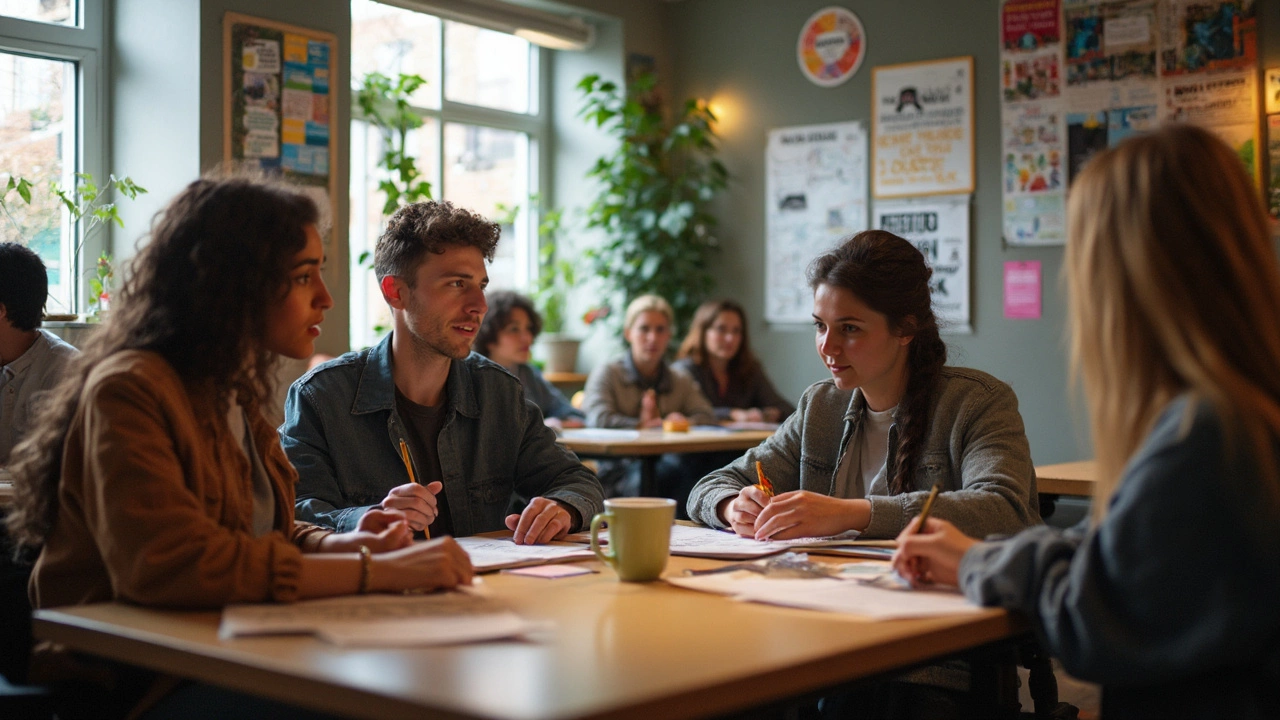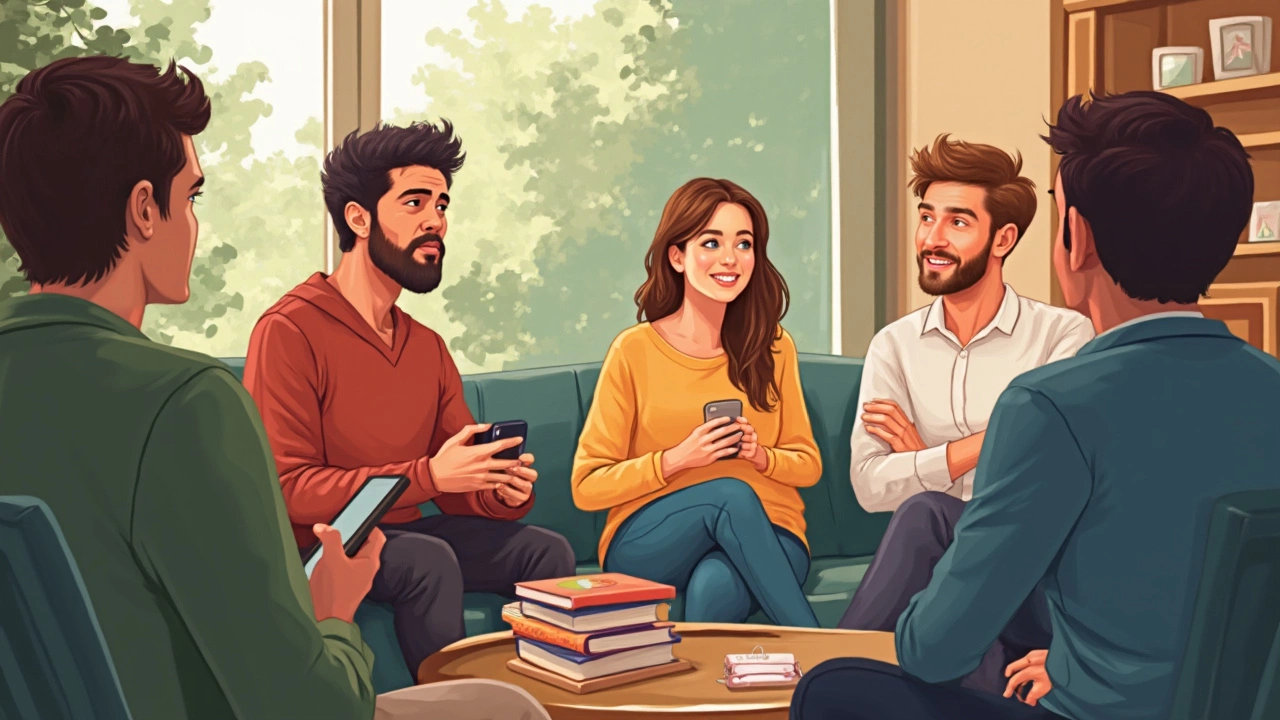People like talking about growth – mental wellness, career, fitness... but hardly anyone brings up sexual learning after high school. That's odd, considering that sex, intimacy, and relationships are huge parts of our lives way beyond our teenage years. If you're thinking you're too old or know it all, here's a wild stat: a 2023 YouGov poll found that around 40% of British adults wish they’d learned more about sex after their school years. Why? Because sex gets more complicated, and so do we.
Why Adult Sex Education Doesn't Stop at School
The idea that sex education should end at graduation is totally outdated. Sex is one of those things that evolves. Your needs change, your interests change, and what feels good – or even safe – can shift with age, health, and experience. If you’re in a relationship, you already know how much communication or miscommunication around sex can make or break trust and happiness.
The fact is, schools barely skim the surface. Sure, they cover biology, condoms, and avoidance. But real life is way more complicated. Did you know that STIs among adults aged 45+ have been steadily climbing in the UK, according to NHS data? This happens partly because folks aren't aware that risk changes, even after decades of having sex. No one teaches you in your thirties or fifties about the subtle ways bodies and desires change. When we stop learning, gaps pop up – gaps that can mean trouble in relationships or your health.
Another thing? Porn and social media aren't reliable teachers. Porn sets up wild expectations but skips over real sex talk: boundaries, contraception failures, emotional safety. Even people who’ve worked with sex workers or London escorts say the biggest surprise is often how much regular, honest conversation matters. Experience counts, but reflection and education make it richer and safer.
Ask around, and you’ll find loads of adults have hung onto early myths. Stuff like "men always want it," "women never initiate," or that talking about kinks is off-limits unless you’re in some secret club. Modern sex education clears these up and lets people relax into what’s real, instead of rolling with weird old stories. Even something as ordinary as asking for consent is best understood as an ongoing practice—not a nervous one-off.
Then there are physical and mental health changes. Health conditions, medication, and plain old life stress can affect desire, function, and pleasure. Did you know certain antidepressants can lower libido or cause other side effects? Knowing what’s normal and when to talk with a doctor only comes from getting good information. There’s research on everything from menopause to prostate health that would make most people’s sex lives calmer, better, and far less nerve-wracking—if they had it.

How New Knowledge Keeps Sex Safe, Happy, and Real
Let’s cut to the chase: sex can be risky if you’re not up to date. Condoms and regular health checks are a big part of the picture, but there’s more to it. Did you know that people over 50 are less likely to use protection, not just in new relationships but even in hook-ups, compared to those in their twenties? That’s how STIs are spreading among older adults. Sex education isn’t just about preventing pregnancy; it gives you a toolkit to stay healthy, even as you age.
And there are emotional risks, too. Sex is loaded with feelings, vulnerabilities, and expectations that shift with partners, life stages, and mental health. A recent study from University College London found adults who openly talked about likes, dislikes, and boundaries had 40% fewer relationship conflicts related to intimacy. That's not a small number. It's proof that being open, asking questions, and unlearning old habits works.
Learning as an adult opens up options. Maybe you've thought about exploring something new but didn't know how to begin. Maybe you're worried about talking to a partner, or not sure where your own boundaries are. Sex education now gives you tools, language, and the bravery to bring it up. That’s how folks end up happier, more confident, and less anxious.
If you work with or even just read about London escorts or other pros, you'll notice that the folks who get the best out of their experiences are often those who communicate clearly. They ask questions, respect boundaries, and share their own interests without shame. Sex workers, in many ways, can be unexpected educators: they see people at their most open, and many say that talking is at least half the job.
- Check for updates on sexual health guidelines. The NHS and similar sites regularly share new info.
- Learn about consent, not just as a one-time conversation but something to check in on often.
- Stay curious. Workshops, podcasts, and books by sex educators are full of practical advice.
- Practice asking and sharing – even if it feels awkward. The more you do it, the easier it gets.
- Don’t believe that age or being in a long relationship means you know all there is to know.
The upside? You get to have safer, better sex. Less awkwardness, fewer regrets, and stronger intimacy, whether that’s with a long-term partner, someone new, or just figuring out your own body solo. By the way, couples who check in about sex and try new things together report higher satisfaction, according to a big 2020 Kinsey Institute study. So there’s science behind keeping things fresh.

Tips and Tools for Lifelong Sexual Learning
Picturing yourself sitting in a classroom? Relax – it doesn’t work that way. Adult sex education can be as simple as reading an article, chatting with friends, listening to a podcast, or having an honest talk with a partner. Here are some ways people keep learning, and why each one can be a game-changer:
- Follow trusted sexual health websites. Sounds obvious, but it keeps you tuned in to new research, new products, or even new risks.
- Read books by certified sex educators. There’s a difference between a self-help book and work by a therapist with real experience. Look for names like Emily Nagoski or Justin Lehmiller.
- Ask your GP about changes, worries, or questions. Don’t wait for a crisis.
- Find workshops or online classes, especially for topics nobody covers in public: kink, menopause, sex after trauma, disability and sex.
- Talk with friends you trust. It’s wild how much shame or confusion disappears when someone else admits they’ve wondered about the same thing.
- Use resources from groups like Planned Parenthood, NHS, or respected YouTube channels – the good ones use research and skip the shock tactics.
And here’s something no one tells you—learning leads to more confidence. A 2022 survey showed that adults who put time into learning about sex reported not only better sex lives, but also more honest and open communication at home, work, and even with friends.
Even if you think your sex life is fine, curiosity makes things better. Explore what’s changed for your body or your partner’s. Ask why you believe what you believe—did you learn it somewhere useful, or just from random chatter? The most content people see learning as normal: part of loving themselves and others, not a sign of weakness or neediness.
For single folks, knowledge means safer, less nerve-wracking encounters. For people in relationships, it can bring adventure, closeness, and surprise (the good kind). If you’re exploring with sex workers, understanding safety, legality, and mutual respect takes away anxiety and makes everyone more comfortable—learning keeps things above board and more enjoyable.
| Adult Learner | Benefits Noted |
|---|---|
| Single | More confidence, safer decisions, less awkwardness, fewer regrets |
| In a relationship | Better communication, higher satisfaction, more desire, fewer arguments |
| LGBTQ+ | Greater self-acceptance, safer practices, more connection to community |
| Exploring new interests | Reduced shame, better boundaries, more fun |
So, no matter your age, relationship status, or experience level, keep feeding your curiosity. Sex isn’t a one-and-done skill. It grows with you, and so does your ability to enjoy it. Ask questions. Listen. Try new things. Be honest about what you want and open to what changes with time. That’s the real secret to a lifetime of good sex—not just for you, but for every partner who crosses your path.
